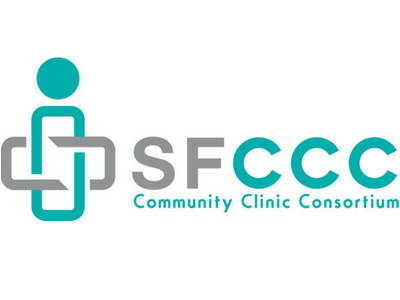Celebrating Dr. David Ofman
"He was fond of telling the clinic staff, 'Now don’t give up on me,' and we never did."
The incredible value Health Centers bring to their patients and community is because of health center heroes– individuals who are committed to providing high quality care to patients in need. Health Center Heroes are dedicated to the Community Health Center Movement and deserve to be recognized. Today, join SFCCC in recognizing Dr. David Ofman and his commitment to providing high quality care to patients in need. Check out SFCCC's interview with Dr. Ofman and find out why he loves what he does!
How long have you been working in community health?
[I've been] at Curry Senior Center since 1982.
What is your favorite part of your job?
Seeing patients whom I have followed for a long time doing well.
Do you have any patient stories that stand out to you?
1. A Latina woman from Central America who probably has developmental impairment was referred to our clinic social worker who referred her for services, which she had never received before, one of which was a painting program. She still goes to it twice a week, she sells some of her paintings, and her sisters call her “Picassa.”
2. A Caucasian patient of mine with a severe alcohol problem was being evicted for alcohol-related problems. I was concerned that he wouldn’t survive on the streets, but we were not able to find an alternative for him. As fate would have it, he broke his hip while intoxicated before his eviction was finalized, had hip surgery, and went to Laguna Honda Hospital for rehab. He got sober at Laguna Honda, stayed sober after discharge, was discharged to an apartment he really liked, and died of an unrelated cancer several years later, still sober and still grateful for the help he got.
3. A Latino patient of mine suffered the death of his wife after many years of marriage. I was concerned that he might not do well after her passing, as he was quite dependent on her. It has now been over 15 years since she passed away, he has survived and done well, he is now in his 90’s, quite functional in the community, still walking around, and with a number of medical conditions that are all stable. He has been my patient for over 25 years.
4. An African American patient of mine had a significant opioid addiction, which greatly interfered with his function in the community. He used an electric wheelchair due a prior stroke, and he also had a severe expressive disorder that made him very difficult to understand. He had a tendency to ride around in his electric wheelchair until the battery died, someone would call 911, and he would be sent to the SFGH Emergency Department with a diagnosis of “dead battery,” which did not please administrators there. We were never able to help him achieve abstinence, but we were able to support him so that he stayed independent in the community. He was fond of telling the clinic staff, “Now don’t give up on me,” and we never did. He died of an unrelated malignancy at Laguna Honda hospice, and at his memorial service, a number of people told stories of how he had affected their lives, both friends and family. His substance abuse problem was not the totality of his life; he was able to have a positive impact on people despite it.
If you had any advice to give to providers who want to work in community health, what would it be?
It’s a rewarding career with a great deal of personal satisfaction, even if the financial rewards are less than in the private sector. Your ability to positively impact people’s lives is probably higher in community health, because poor people have a higher burden of disease and social factors that negatively impact health.
Why have you continued to work in community health?
I like it. It gives you a unique entry into people’s lives and their stories.
